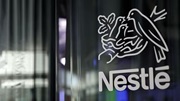07 May, 2024
Controversy related to Nestle Company and sugary processed products
Sun 21 Apr, 2024
Context
- In its report, Public Eye and International Baby Food Action Network (IBFAN), a Swiss NGO investigative agency, has accused Nestle of increasing the amount of added sugar in the packaged baby food it sells in India and other developing countries.
- Whereas in America and developed countries, the amount of sugar in these products is as per the standards of the World Health Organization (WHO) and there is no added sugar in them at all.
Key Points
- This finding contradicts international guidelines aimed at preventing obesity and chronic diseases, especially in low- and middle-income countries.
- Nestle India has denied these allegations and said that the company has reduced the amount of added sugar in its products in India by 30 percent in the last five years.
- After this matter came to light, the Food Safety and Standards Authority of India (FSSAI) has started investigating the controversy over sugar content in Nestle's Cerelac products.
- According to FSSAI, if Nestle is found at fault, the regulatory body will take strict action against the brand.
- Notably, in the Indian market alone, with sales expected to exceed $250 million in 2022, each Cerelac baby cereal variant contains added sugar, averaging about 3 grams per portion.
- A recent investigation by Public Eye has revealed that Cerelac wheat-based cereals produced by Nestlé for six-month-old infants in Germany, France and the UK do not contain added sugar.
- In contrast, the amount per serving of the same product is more than 5 grams in Ethiopia and more than 6 grams in Thailand.
- It is noteworthy that Nestlé's online platform, which provides guidance on infant nutrition, clearly mentions: "It is not recommended to add sugar when preparing food for your baby or providing them with sweetened drinks.”
- Some leading nutrition and health care experts suggest avoiding it to begin with.
- Stay away from juice blends or alternative blended beverages containing supplemental sweetening agents due to the relatively high natural sugar content of fruit juices in the early years.
- According to the above suggestion, although sugar is not available in Nestle Baby Food in America and Europe, sugar is available in the company's Baby Food in India and other developing countries.
Effect
Harmful effects on children's health
- Eating too much sugar can cause insulin resistance in the body. Due to this, more glucose is also produced in the body. These problems can cause obesity and diabetes.
- More cases of type 2 diabetes are seen in children who are obese. A major reason for increasing obesity is excess sugar in the diet. Children who have a bad lifestyle and have high sugar in their diet are many times more likely to develop diabetes than normal children.
- Too much sugar can also spoil the hormonal function of children. Excessive consumption of sugar in some children also weakens their immunity. Due to this, children easily become victims of any type of infection.
- It has also been shown in many studies that excessive consumption of sugar affects the brain function. Due to this, children become victims of dangerous diseases like depression.
Important Facts For Exams
WHO
- Established: 1948
- Headquarter : Geneva, Switzerland
- Membership: Members of the United Nations can become members of this organisation.

















